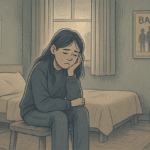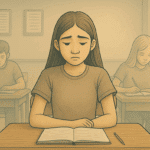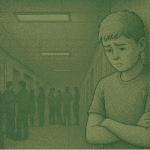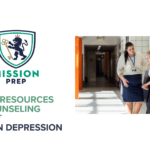
Seeking timely treatment for bipolar depression is crucial for managing symptoms and improving overall well-being. Left untreated, this condition can worsen over time, making it more difficult to navigate daily responsibilities and maintain emotional stability. At Mission Prep, we offer both bipolar disorder treatment options, including inpatient and outpatient programs, tailored to meet individual needs. Our compassionate team provides a supportive environment to guide individuals through the treatment process, helping them regain control and balance.
Bipolar Depression is a specific phase of Bipolar Disorder, marked by severe mood swings that alternate between depressive and manic or hypomanic episodes. During the depressive phase, individuals experience prolonged periods of low mood, fatigue, and hopelessness. Understanding and addressing these symptoms early on is essential for long-term recovery. Contact us today to learn more about how our comprehensive treatment options can help.
MISSION PREP

Bipolar Depression Symptoms: What to expect at Mission Prep
Bipolar depression presents a range of symptoms that significantly impact a person’s daily life. Common symptoms of bipolar depression include prolonged periods of intense sadness or hopelessness, often accompanied by overwhelming fatigue and low energy. Individuals may also experience bipolar depressive symptoms such as difficulty concentrating, making decisions, and changes in sleep patterns, ranging from insomnia to excessive sleep. Irritability, frustration, and a loss of interest in activities once enjoyed are also common. In more severe cases, thoughts of self-harm or suicide may occur. Recognizing these symptoms early is essential for seeking the right treatment and support.
What Mission Prep Looks for in Diagnosis and Treatment
Individuals experiencing bipolar depression often face a combination of challenging symptoms. These can include intense feelings of sadness or hopelessness, which may lead to overwhelming fatigue and low energy levels. Many struggle with difficulty concentrating or making decisions, while changes in sleep patterns, such as insomnia or oversleeping, are common. Irritability or frustration can surface, along with a noticeable loss of interest in activities once enjoyed. In more severe cases, suicidal thoughts or self-harm tendencies may arise. Recognizing these symptoms early is crucial for getting the appropriate support and treatment.

Bipolar Depression Symptoms Across Age Groups: Mission Prep’s Approach
Adults
Understanding the Causes of Bipolar Depression: Mission Prep's Comprehensive Approach
Understanding the causes of bipolar depression is essential for proper diagnosis and treatment. One significant factor is brain chemistry, where imbalances in neurotransmitters like serotonin and dopamine can contribute to mood regulation issues. Genetics also play a crucial role, as individuals with a family history of bipolar disorder are at a higher risk of developing the condition. Additionally, life events, particularly traumatic or highly stressful experiences, can act as triggers for bipolar episodes. Lastly, substance use, including alcohol or drug misuse, can intensify mood swings and potentially lead to a bipolar episode. Identifying what causes bipolar disorder can guide the development of an effective treatment plan.

Bipolar Depression Treatment Solutions at Mission Prep
Treatment for bipolar depression is comprehensive, typically involving a combination of medication, therapy, and lifestyle adjustments. An individualized approach is key, as bipolar depression treatment must be customized to each person’s unique needs to ensure effective management of symptoms. By integrating various therapeutic methods and strategies, individuals can find long-term stability and improved quality of life.
Personalized Medication Plans
Common medications for bipolar disorder play a vital role in managing the condition and helping individuals maintain stability. These include:
- Mood stabilizers for bipolar depression, such as lithium or valproate, which are used to prevent the extreme mood swings characteristic of the disorder.
- Antidepressants, which are prescribed carefully to alleviate depressive symptoms but must be monitored to avoid triggering manic episodes.
- Antipsychotics, often used to manage more severe symptoms, including psychotic features that may emerge during depressive episodes.
A tailored bipolar disorder medication plan is crucial for effectively managing symptoms and promoting long-term recovery.
Therapeutic Approaches for Bipolar Disorder
Therapy for bipolar depression is a key component in helping individuals manage symptoms and achieve long-term stability. A range of therapeutic approaches are used, including:
- Cognitive Behavioral Therapy (CBT), which helps individuals identify and modify negative thought patterns that contribute to depressive episodes.
- Dialectical Behavior Therapy (DBT), focusing on emotional regulation, stress management, and developing healthy coping mechanisms.
- Family Therapy, which involves family members to enhance communication and provide support, creating a stronger foundation for the individual’s recovery.
These forms of bipolar disorder therapy are crucial for addressing both the emotional and relational challenges associated with the disorder.
Tailored Treatment Solutions
Successful treatment for Bipolar Depression often involves a combination of medication and psychotherapy. Other holistic approaches, such as lifestyle changes and wellness practices, may be integrated into the treatment plan.
- Medication and Therapy Combination: Combining medications and psychotherapy often yields the best results for long-term stability.
- Lifestyle Changes: Exercise, sleep hygiene, and stress management play crucial roles in maintaining stability.
Mission Prep's Comprehensive Bipolar Depression Treatment Program
Our bipolar depression treatment program offers both inpatient bipolar depression treatment and outpatient bipolar depression treatment, ensuring flexibility and personalized care to meet each individual’s needs. Whether patients require the structured environment of inpatient care or the flexibility of outpatient support, our program is designed to provide a nurturing and supportive space for healing. With a focus on long-term stability, our experienced team tailors treatment plans to help individuals regain control over their lives and manage their symptoms effectively.

Comparing Inpatient and Outpatient Bipolar Depression Care at Mission Prep
At Mission Prep, we offer both inpatient bipolar depression treatment and outpatient bipolar depression treatment to meet the varying needs of our patients. Contact us today to learn more about which treatment option best suits your needs.
Inpatient Treatment
This option provides 24/7 care in a residential setting, making it ideal for individuals with severe or high-risk cases of bipolar depression. With round-the-clock support, patients receive intensive treatment to help manage symptoms and regain stability in a structured environment.
Outpatient Treatement
For those who need consistent therapy but wish to maintain their daily routines, our outpatient program offers flexibility. Individuals receive regular therapeutic support while continuing with work, school, or family life, making it a great option for those with less severe symptoms.



















